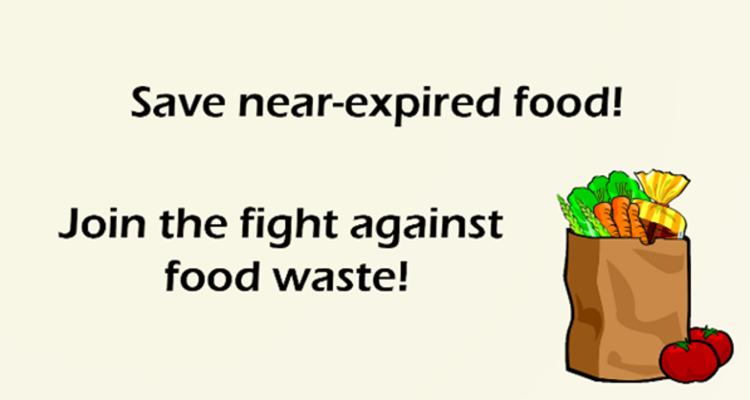
Blog
Reducing the waste of near-expired food via messages in supermarkets
Background
Have you ever bought food with a close-to-expiration label in supermarkets? Did you eat all this food after arriving home? In general, consumers are reluctant to buy and consume near-expired food, which contributes to food waste in supermarkets and households. An astonishing 931 million tons of food were wasted in 2019 worldwide. Retail and households account for a large proportion of this waste, 13%, and 61%, respectively. This food waste aggravates economic, environmental, and societal problems by wasting money and precious resources (i.e., soil, and water) and emitting greenhouse gas unnecessarily. Therefore, reducing food waste, such as facilitating the purchase and consumption of near-expired food, is essential.
Due to consumers’ resistance to near-expired food, retailers have taken action to promote near-expired food, including offering discounts or communicating about the benefit of reducing food waste by buying such food. Offering discounts has been proven to effectively increase the purchase of near-expired food. However, whether a food-waste-avoidance message without any discounts offered is effective remains unknown. In research, so far this message has always been seen as a supplement for discounts.
Furthermore, whether and how these retail activities shape consumer behaviors after purchasing the near-expired food from supermarkets is less examined. Do these retail activities help reduce the waste of near-expired food? Do they transfer the risk of food waste from supermarkets to households by selling near-expired food to consumers? This concern arises from the fact that food is already close to expiration when consumers are persuaded to buy it.
Method
To clarify these questions, we investigate whether and why a food-waste-avoidance message encourages consumers to buy near-expired food in supermarkets and what happens to this food after being purchased. We conducted four experiments in the Netherlands and the United Kingdom, in which participants imagined they were shopping in a supermarket and saw some near-expired bake-at-home bread rolls. In the imagined supermarket, participants either saw a food-waste-avoidance message (“Save near-expired food! Join the fight against food waste!”) or not. Next, they reported their willingness to buy those near-expired bread rolls. Regardless of their willingness to buy, participants imagined that they had bought one bag of near-expired bread rolls and reported what they would do with the bread rolls at home. We used various measures of household behaviors to check whether the results were consistent across the four experiments.
The results consistently show that a food-waste-avoidance message increases consumers’ willingness to buy near-expired food by increasing their moral satisfaction—good feelings about oneself from performing moral behaviors. Meanwhile, such a message does not influence what consumers do with the purchased near-expired food at home. Regardless of whether consumers see the message or not, they tend to treat the purchased near-expired food with more waste-prevention behaviors (accelerated consumption and freezing) than they would for food products that are not near-expired.
Implications
The results point out that a food-waste-avoidance message without discounts can help reduce the waste of near-expired food in supermarkets, while in the meantime not increasing the waste of this food in households. As the main provider of food for households, food retailers are demanded to take social responsibility for tackling food waste. Our findings provide empirical support for retailers to use food-waste-avoidance messages, a low-cost strategy, to sell near-expired food.
In addition, this research also contributes to science in several ways. First, to our best knowledge, our findings reveal for the first time that a food-waste-avoidance message in the absence of discounts has its own value in encouraging consumers to buy near-expired food. Second, our findings provide a comprehensive understanding of how consumers respond to near-expired food both during (in supermarkets) and after (at home) the purchase phase.
Will supermarkets display more food-waste-avoidance messages? I leave this question for you, our readers, to observe. Perhaps you may also try to buy and consume some near-expired food from the supermarket next time.
Interested to know more? Check out the article: Zhang, Y., van Herpen, E., Van Loo, E. J., Pandelaere, M., & Geuens, M. (2022). Save near-expired food: Does a message to avoid food waste affect food purchase and household waste prevention behaviors? Journal of Cleaner Production, 384. https://doi.org/10.1016/j.jclepro.2022.135555
Yi Zhang is a PhD candidate who focuses on consumer behaviors related to food waste. She investigates (1) how and why retail activities (e.g., messages, surprise food bags) influence consumer behaviors related to food waste and (2) how consumers handle suboptimal food (e.g., food sharing) and why. By examining these questions, she hopes to provide insights into future food systems with less food waste, as part of the NWO project "Food waste: transition from excess to enough".